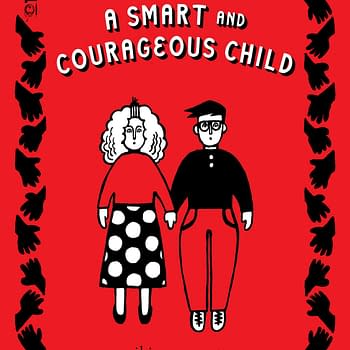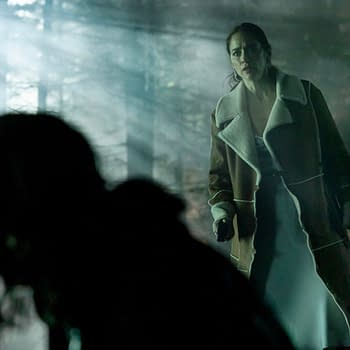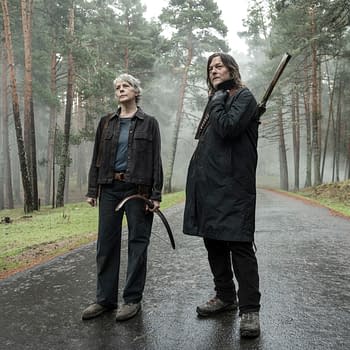Posted in: CBC, Opinion, TV, TV | Tagged: bleeding cool, books, buffalo bill, cable, cbs, clarice, homeland, Lecter, novels, opinion, Rebecca Breeds, silence of the lambs, starling, streaming, television, the killing, thomas harris, tv
Clarice: "Lambs" Spinoff Series Misfires Part of Larger Pattern
Clarice is a new network sequel to "The Silence of the Lambs" featuring the FBI agent Clarice Starling, played by Rebecca Breeds that spectacularly misses the mark. It seems to completely misunderstand the main appeal of the character and what kind of story audiences want to see her in. Set in the 1990s before the pesky internet and those annoying smartphones made writing thrillers more difficult, the series follows Starling after she defeated serial killer Buffalo Bill and stuck with the fame and notoriety that resulted from it.

She suffering from PTSD, a cliché for a lot of heroes and heroines these days, though it doesn't make much for her to have PTSD considering she killed Buffalo Bill in the movie and rescued Catherin Martin without getting a scratch. She's portrayed as twitchy and unstable, prone to hallucinating moths due to their association with the death of her father in some really obvious Psychology 101 screenwriting tropes. The biggest problem with the show is that it insists that Clarice Starling is really smart when she's written as really, really dumb in every turn. In every episode, she disobeys orders and runs off on her own to pursue a lead, which puts her in jeopardy. She's a poster child for the Idiot Ball. The Idiot Ball is a term in Hollywood TV writing for when characters are purposely written to do something really stupid in order for the plot to happen.
And it only took 5 episodes for her to get kidnapped and held hostage, waiting for the supporting cast to find and rescue her. In the movie Silence of the Lambs, Jodie Foster's portrayal of Starling is of a melancholy woman with a tragic past who's determined to do good. In the show, Starling is written as fragile and mentally unstable, prone to hallucinating expressions of her many past traumas, and understandably regarded as unreliable and unstable by her colleagues. Unlike the movie, she's written as a fragile damsel-in-distress who needs rescuing. Her actions would have gotten her fired or transferred out from the first episode but the writers insist on keeping her in her job. And the premise of the show is the opposite of what fans actually want – they want a show about Clarice Starling hunting serial killers, not a serial about her uncovering a corporate conspiracy.
In an era when networks and studios are busting a gut to feature "strong" female protagonists, Clarice is weirdly retro in its sexism, as if nostalgically setting the show in the 1990s gave it license to be sexist with its heroine. It feels the need to portray its heroine as mentally unstable, emotionally fragile in ways that few male heroes ever get written. This has been a common trope in many shows in the 1990s and early 2000s. The US remake of The Killing has to give its heroine (Mireille Enos) a history of mental illness in order to imbue her with "vulnerability" when the original Scandinavian version of the show never needed to do that: Sarah Lund (Sophie Gråbøl) was simply uncompromising and single-minded in her pursuit of a case without the need to show her as mentally ill or unstable. Carrie Mathison (Claire Danes) in Homeland had bipolar disorder, which in real life would not have escaped the vetting process during the recruitment and kept her out of the CIA, yet the entire series has her running amok as an agent getting people killed willy-nilly. The TV version of Clarice brought back that unwelcome sexist trope just when you thought it was we were finally rid of it.
Clarice is currently on CBS.













